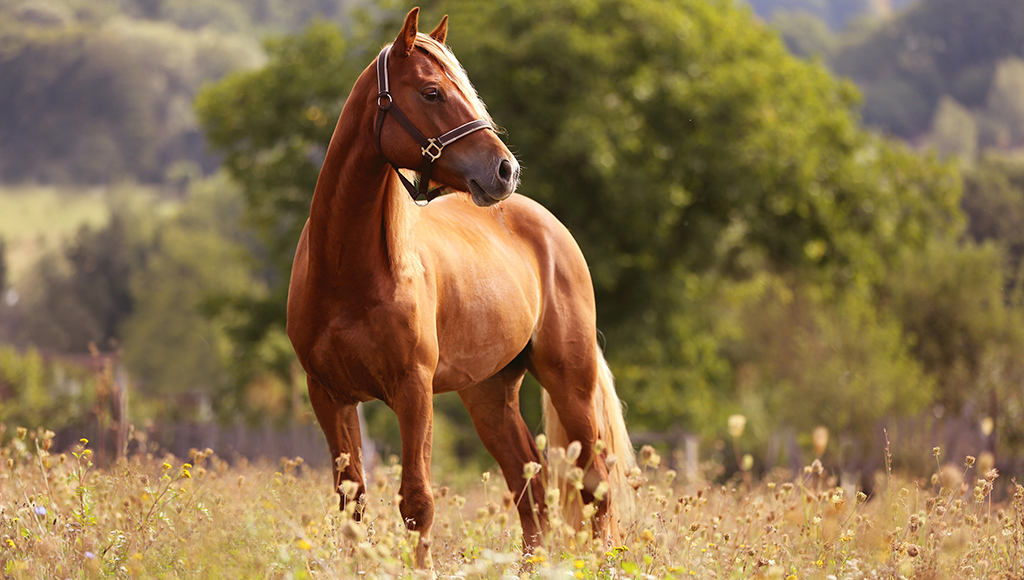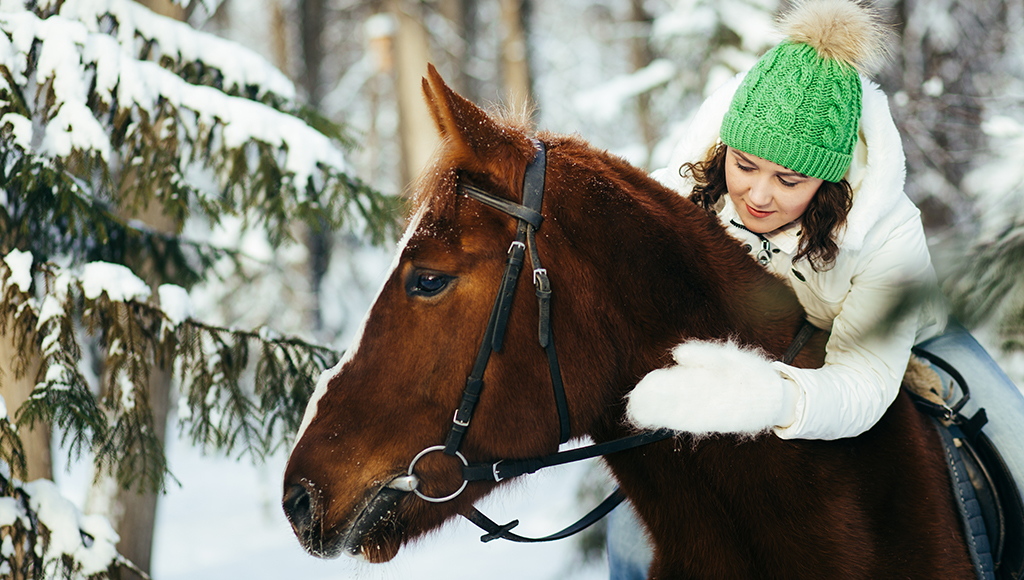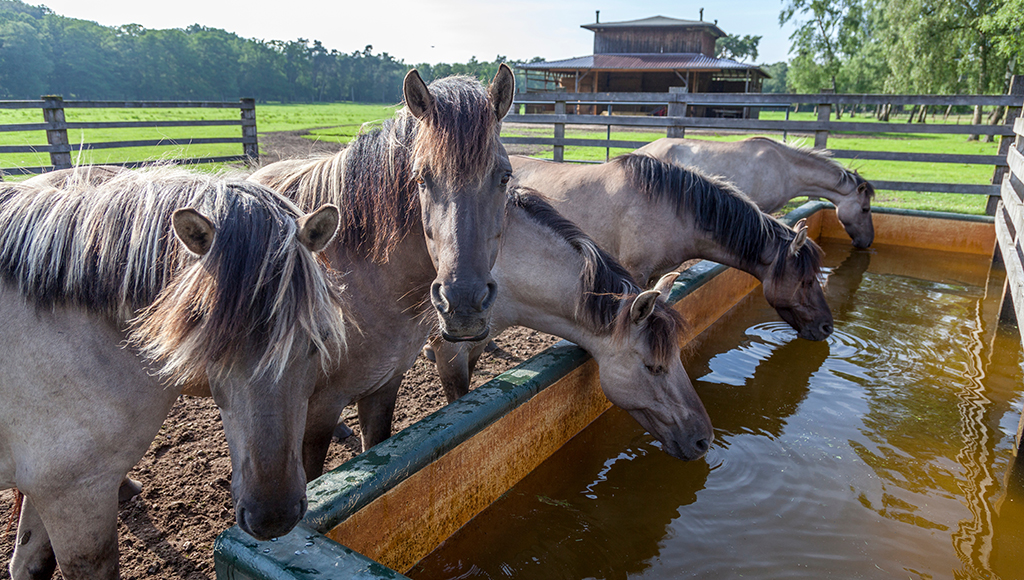Horses: Avoiding Summer's Hazards
Late May to August brings some extra hazards for horses. Here are tips to help keep your horse healthy.

With the warm weather of spring gradually giving way to the hotter temperatures of summer; late May to August brings with it some hazards for horses. Prevention is always better than treatment, so we’ll share some helpful information for keeping your horse healthy and happy.
Sweet Itch
This is an allergic reaction to bites from midges (culicoides), characterized by severe irritation along the mane and tail. When horses rub against things to scratch an itch, there can be hair loss and sometimes infected skin abrasions. Veterinary treatment with corticosteroids may provide temporary relief, but long-term steroid treatment has associated side effects including laminitis, while antihistamines can cause drowsiness. An insecticide such as Benzyl benzoate may be prescribed, but care should be taken when applying this to areas of broken skin as it can worsen the irritation. The following may help prevent, or at least lessen the occurrence of sweet itch:
- Avoid stabling horses near stagnant water, manure or compost
heaps.
- Consider stabling during the higher risk periods of dawn and
dusk.
- Mesh screens on stable doors and windows will keep midges
out.
- A protective anti-sweet itch rug may help, particularly if
you cannot
reduce turn-out.
- Use an insect repellent, preferably containing DEET (diethyl toluamide) which is very effective although some midges will still bite.
Urticaria
This is localized skin swelling, which varies from small rashes to larger, fluid-filled plaques over the body. Urticaria can be caused by an allergy to something such as fly bites, or the contact or ingestion of a particular plant the horse is sensitive to. Larger swellings often worsen as the days progress, but usually resolve without veterinary intervention; however drug treatment may be necessary if the swelling fails to subside. If the swelling affects your horse’s ability to breathe, seek veterinary attention immediately to avoid serious complications.
Fly bites
A reaction to saliva from a biting fly can result in a lump or
rash with irritation and soreness. If the horse rubs the affected
area, it can become infected. Cleansing with saline or antiseptic
solution and removing crusty scabs, followed by the application
of a mild antiseptic cream such as E45 will help. Only extremely
severe allergic reactions require veterinary treatment. Consider
the same prevention tips as for sweet itch.
Sunburn and Photosensitization.
Unpigmented areas of skin such as the muzzle are vulnerable to sunburn and photosensitization (an exaggerated sunburn). Photosensitization is triggered by ingestion of plants, including some clovers, alfalfa and St. John’s wort, making the horse more sensitive to sunlight and sunburn. The following will help reduce exposure:
- Avoid turning horses out during the hottest part of the
day.
- Ensure there are shaded areas your horse has access to.
- Apply sunblock and soothing salves to affected areas.
- Consider turn out at night and stabling during the day.
Don’t forget to take care of yourself too – apply sun block frequently and drink plenty of water to prevent dehydration. Riding early in the morning or later in the evening will help to prevent heat stroke, but don’t forget to apply insect repellent to dodge those pesky midges!
Ready to start saving money on pet wellness care?
Then take a look at Mint Wellness, the pet wellness plan that provides fast reimbursement on routine pet care. Save on vaccinations, wellness exams, preventatives, dental, and more!
Learn More

